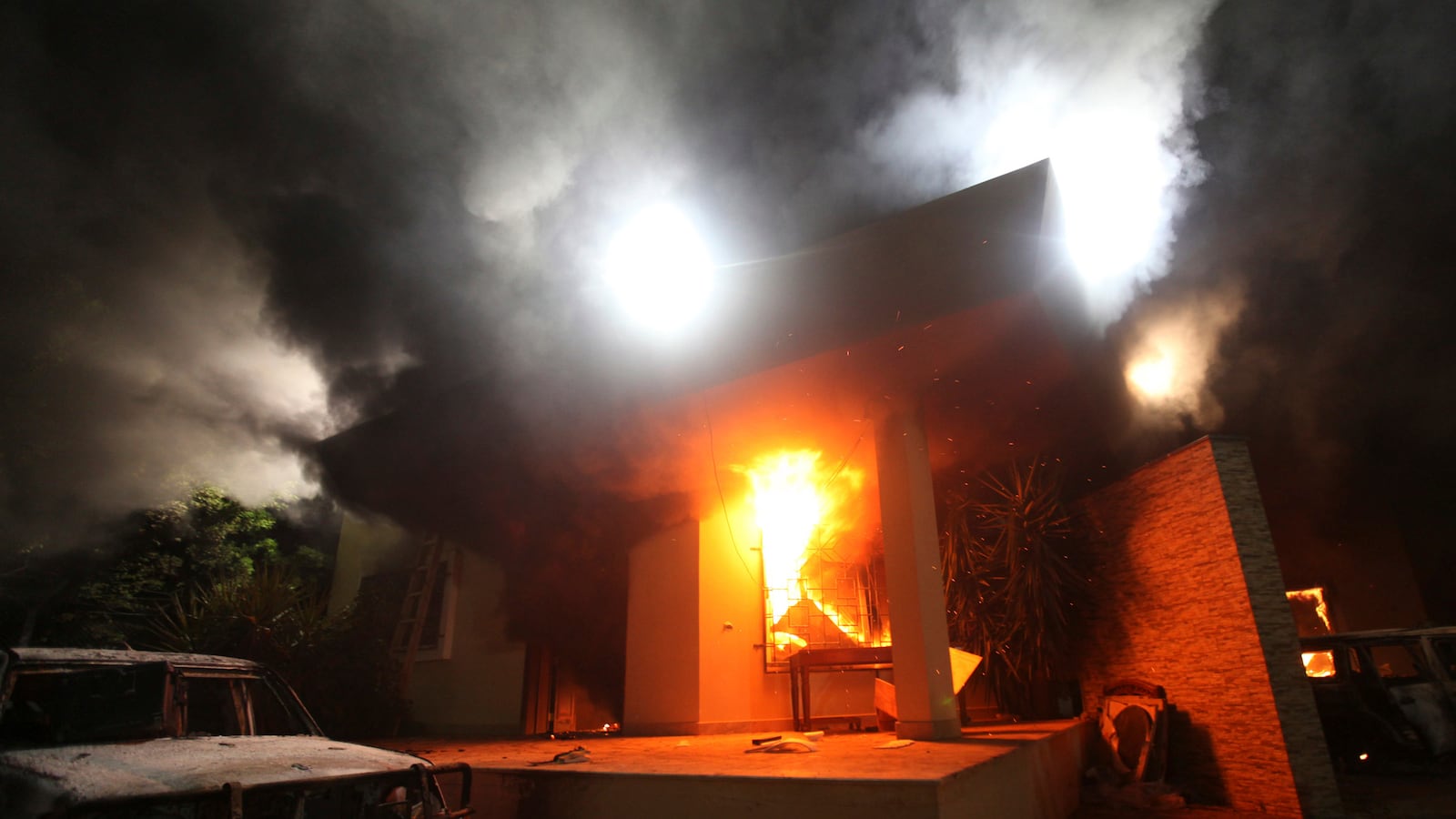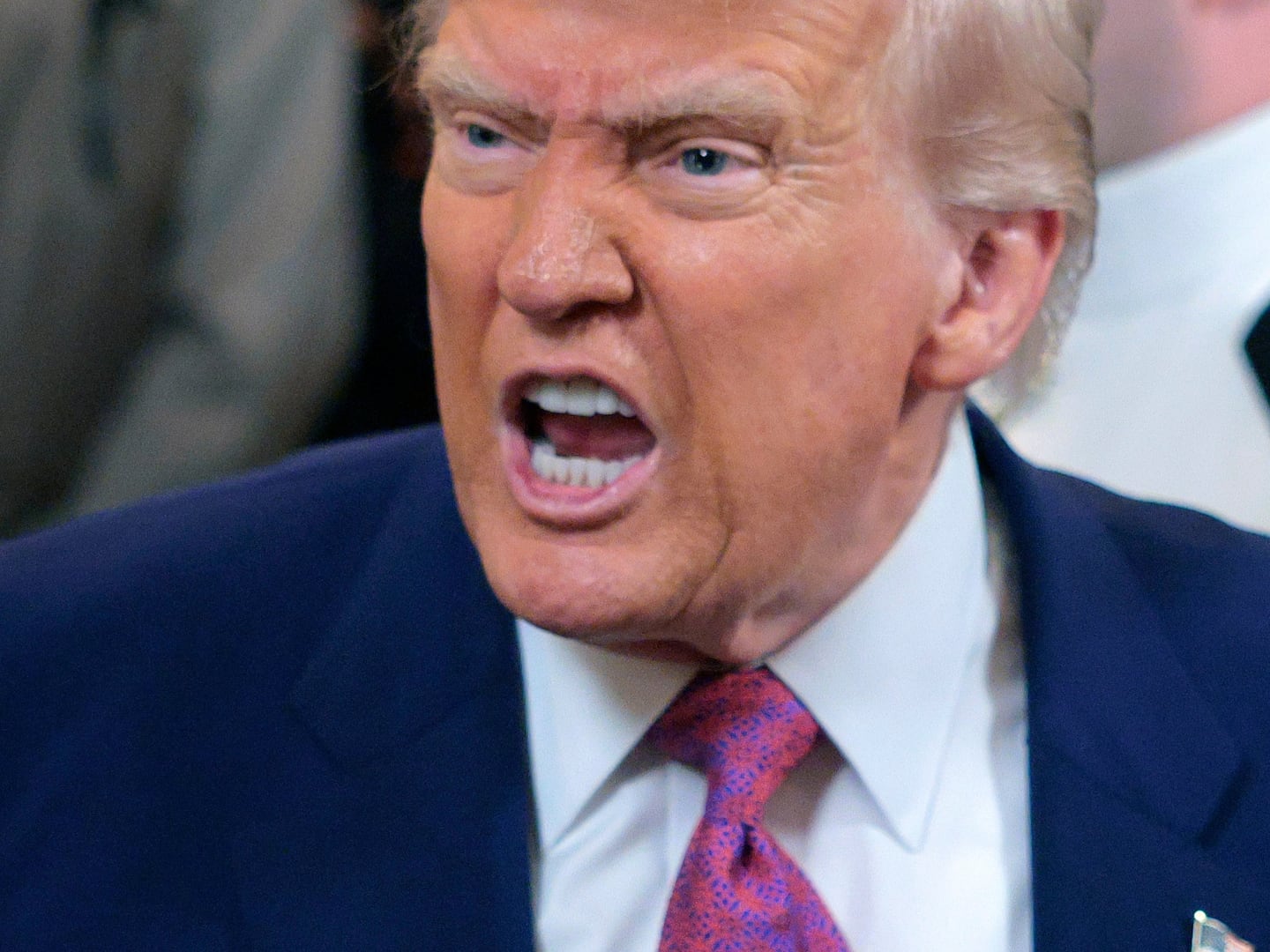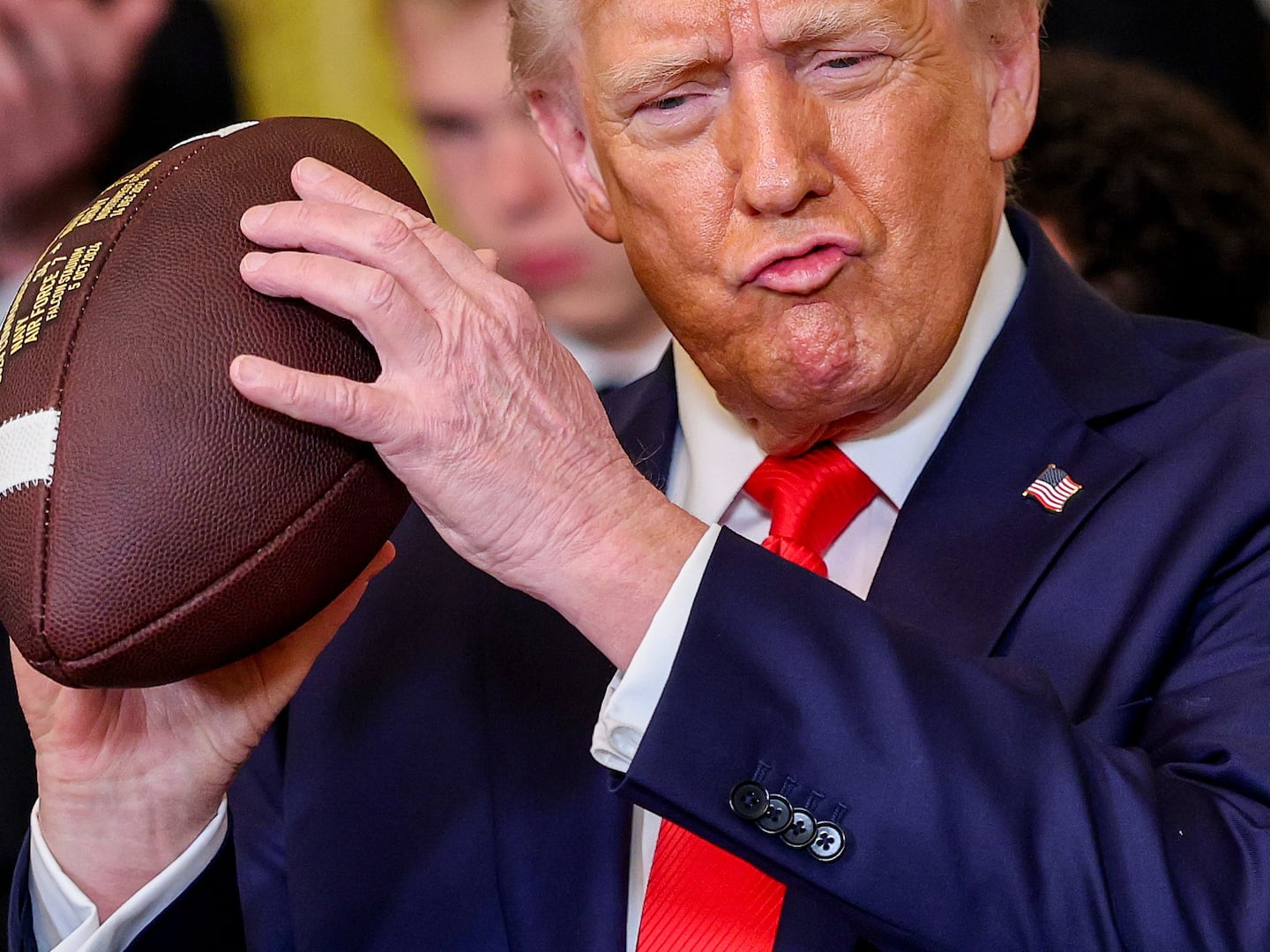A State Department diplomatic security agent on trial for allegedly murdering an unarmed man in Hawaii was part of the original security detail for Ambassador Chris Stevens, who was killed last year when Islamic militants attacked the U.S. mission in Benghazi, Libya.

Chris Deedy is standing trial in Hawaii on second-degree murder charges related to the November 2011 killing of Hawaiian local Kollin Elderts during a 3 a.m. dispute in a Honolulu McDonald’s. Deedy was in Hawaii as part of the team protecting Hillary Clinton at the Asia-Pacific Economic Cooperation (APEC) summit, but was off duty when the shooting occurred. Much like the case of George Zimmerman’s shooting of Trayvon Martin in Florida, Deedy is claiming self-defense, and the details of the brawl are in dispute. Also, Deedy claims he was acting in a pseudo law enforcement capacity and says he can’t receive a fair trial in Hawaii due to racial tensions surrounding the case.
Before Deedy was assigned to Hawaii, he was part of a small group of diplomatic security agents that accompanied Ambassador Stevens into Benghazi to establish the U.S. mission there during the most tense period of the Libyan revolution.
“We arrived April 5th [2011],” Stevens said, according to the December 2011 edition of State magazine, the State Department’s internal periodical. “It was difficult to get there at the time. There weren’t any flights. So we came in by a Greek cargo ship and unloaded our gear and our cars and set up our office there.”
Stevens was sent to establish a diplomatic outpost in Benghazi in the middle of the fighting, something the State Department calls “expeditionary diplomacy.” He met with as many leaders of Libyan opposition groups as he could while his security team, including Deedy, looked for a place for the U.S. diplomatic team to stay. Their first choice for shelter was attacked almost immediately.
“The group’s members needed more than a warm welcome; they needed a place to bed down for the night,” State magazine wrote. “In expeditionary diplomacy, they key is to make do with what you have, so the mission’s first night was spent aboard ship while Diplomatic Security Service agents Brian Haggerty, Kent Anderson, Josh Vincent, Chris Deedy, James Mcanelly, Jason Bierly and Ken Davis, Agent in Charge Keith Carter and Political Officer Nathan Tek scoured the city for rooms. They soon settled into a formerly government-owned hotel where other foreign missions and international journalists were lodged, but had to move when a car bomb exploded in the hotel parking lot.”
Eventually, Stevens settled on a compound just southwest of the city center. On Sept 11, 2012, well after Deedy had left Benghazi, armed militants attacked the compound and killed Stevens as well as three other Americans. Deedy was not there; several lawmakers including Sen. John McCain (R-AZ) and Rep. Frank Wolf (R-VA) are pressing the State Department to release the names of those personnel who were in Benghazi that night and survived the attack.
Deedy’s supporters, who have created a fund to help support his defense, argue that he intervened after witnessing two men harassing a restaurant patron and only fired his State Department issued weapon after he and his friend were attacked.
The arresting officer later posted on his Facebook page that Deedy appeared drunk after the shooting. A toxicology report showed that after the incident, Elderts had alcohol, marijuana, and cocaine in his system.
Deedy initially claimed that the Hawaii courts had no jurisdiction over the case because he was acting as a federal agent at the time of the shooting, but he later withdrew that claim. He also unsuccessfully attempted to have the case transferred to the federal court system.
Unlike in the Zimmerman case, a surveillance video of the altercation between Deedy and Elderts exists and was shown at Deedy’s trial, but experts say it’s unclear from the video who really started the altercation.
Much like the Zimmerman case, the trial has become embroiled in a greater discussion of racism, self-defense, and gun laws. The defense claims that Elderts used the term “haole”—a derogatory Hawaiian term for white people— before the fight broke out.
“This case became a symbol of the federal government wrongfully exercising jurisdiction over the Hawaiian Kingdom; it became a sign of the 1% oppressing the 99%; it became an example of a mainland ‘haole’ allegedly expressing malice and prejudice towards a local Hawaiian,” Deedy’s attorney Brook Hart said in a motion to the court. “It further sparked discussions on handguns and concealed carry, as well as on the roles that alcohol, drugs, and ‘clubbing’ play in our society. Through in-depth media coverage, Special Agent Deedy’s case raised deep-seated social, psychological, and philosophical issues, especially those particular to Hawaii, such as oppression, sovereignty, and racism.”
Elderts’ family’s attorney, Michael Green, said that the defense is playing the race card to distract from the facts of the case.
“[Hart is] trying to create any type of an issue that the thinks might help him at trial,” Green told the Honolulu Civil Beat. “He’s doing his job as a lawyer.”






